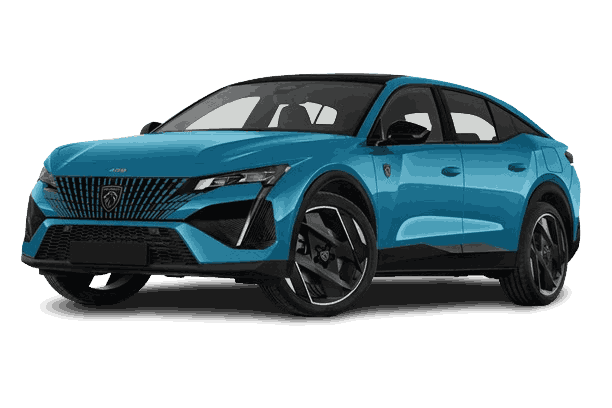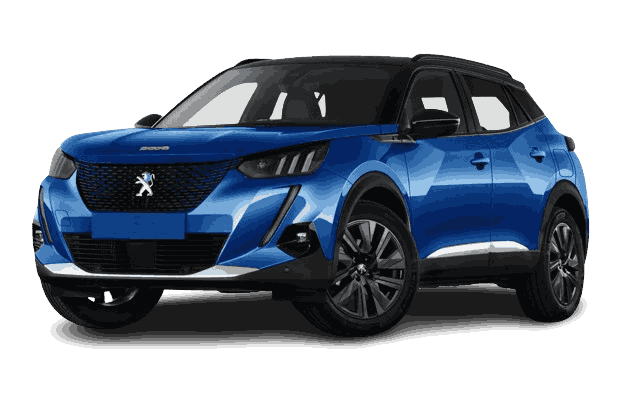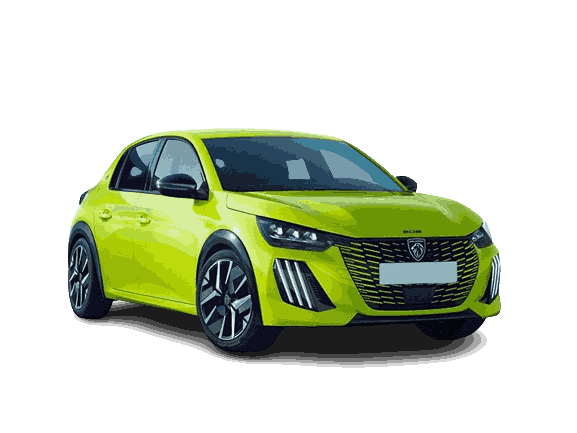The Legacy & Future of the French Automakers Peugeot
Peugeot stands as proof of over two centuries of automotive excellence, blending innovative design with engineering expertise to craft vehicles that resonate with drivers around the globe. Founded in the early 19th century, it has evolved from manufacturing coffee mills and bicycles into one of the most prestigious car manufacturers in the world. Peugeot’s journey through the ages reflects a relentless pursuit of innovation and quality, underpinned by a deep commitment to enhancing the driving experience.
Today, Peugeot is renowned for its diverse range of vehicles that cater to a wide spectrum of preferences and needs, including sleek city cars, robust SUVs, and pioneering electric and hybrid models. With a legacy adorned with numerous awards for design and performance, Peugeot continues to push the boundaries of automotive technology, aiming to lead the transition towards a more sustainable and connected future of mobility. Through this, the brand not only honors its rich heritage but also charts a course toward an exciting and dynamic future.
Insights From Past To Present
Peugeot History and Legacy
The origins of Peugeot trace back to 1810 in the Franche-Comté region of France, where the Peugeot family business initially focused on manufacturing coffee mills and bicycles. It wasn’t until 1889 that Armand Peugeot introduced the company’s first automobile, a three-wheeled steam-powered car, marking Peugeot’s foray into the automotive industry. The transition to gasoline-powered vehicles came shortly after, with the production of the Type 2 in 1890, powered by an internal combustion engine. This pivotal shift laid the foundation for Peugeot’s long-standing legacy in automotive manufacturing.
Over the decades, Peugeot underwent significant transformations that shaped its journey in the automotive world. In 1929, the company introduced the Peugeot 201, a low-cost, mass-produced vehicle, which set the stage for its future success in making automobiles accessible to a wider audience. The post-war era saw a boom in Peugeot’s production capabilities, leading to the launch of iconic models such as the 404 and 504 in the 1960s and 1970s, which were acclaimed for their durability and performance.
The 1980s marked a new era of innovation with the introduction of the Peugeot 205, a small car that became immensely popular for its design and efficiency, playing a crucial role in the brand’s revival. The late 20th and early 21st centuries saw Peugeot expanding its reach globally, venturing into new markets and continually innovating its product line to include more environmentally friendly vehicles, such as hybrids and electric models.
Iconic Peugeot Models
- Peugeot 205 (1983-1998): Often credited with saving the company during a difficult time, the 205 was a small car that offered agility, efficiency, and an iconic design. Its success was bolstered by the legendary 205 GTi, which became a benchmark for hot hatches.
- Peugeot 404 (1960-1975): Renowned for its durability and advanced features for its time, the 404 became a staple in many countries, especially in Africa, where it is still revered and used.
- Peugeot 504 (1968-1983): A symbol of reliability and versatility, the 504 was a family car that won the 1969 European Car of the Year and became famous for its endurance, even in the toughest driving conditions.
- Peugeot 406 Coupe (1997-2004): Designed by Pininfarina, the 406 Coupe was celebrated for its elegant design and performance, becoming a classic example of Peugeot’s commitment to combining aesthetics with functionality.

Diverse Peugeot Vehicles Lineup
Peugeot Models - Complete Range
Passenger Cars
- Peugeot 208: A compact and stylish hatchback that stands out for its fuel efficiency and agile performance, making it perfect for city driving. The Peugeot 208 also comes in an electric variant, the e-208, which offers zero-emission driving without compromising on style or driving enjoyment.
- Peugeot 508: This model is a testament to Peugeot's design and engineering prowess, offering a blend of luxury, performance, and cutting-edge technology. The 508 is available as a sedan or station wagon, catering to those who seek elegance without sacrificing practicality.
SUVs & Crossovers
- Peugeot 2008: A dynamic SUV that offers a great mix of style, comfort, and efficiency, suitable for both city roads and outdoor adventures. It's available in combustion, electric, and hybrid models, catering to a wide range of customer preferences.
- Peugeot 5008: A larger SUV that provides ample space for families and groups, with advanced safety features and a flexible interior layout for maximum convenience. The 5008 showcases Peugeot's commitment to delivering vehicles that don't compromise on performance, comfort, or style.
Electric & Hybrid Vehicles
- Peugeot e-2008: An all-electric SUV that combines space, style, and environmental consciousness. With a generous range and fast-charging capabilities, the e-2008 is ideal for families looking to make the switch to electric without compromising on versatility.
- Peugeot 3008 Hybrid4: As a part of Peugeot's commitment to electrification, the 3008 Hybrid4 provides a compelling mix of power, efficiency, and low emissions. This plug-in hybrid SUV offers the flexibility of electric driving for daily commutes and a petrol engine for longer journeys.
Commercial Vehicles
- Peugeot Partner: A compact van that is a stalwart for businesses requiring agility and practicality. The Partner is lauded for its loading capacity, fuel efficiency, and comfort, making it an ideal choice for urban deliveries and tradespeople.
- Peugeot Boxer: Designed for heavier loads and larger capacities, the Boxer van caters to a wide range of professional needs. It's recognized for its durability, spacious cargo area, and customizable options, making it suitable for everything from courier services to mobile workshops.
Need Peugeot Repairs? Contact Us & Book an Appointment Now
Leadership of Peugeot - A French Automaker
Peugeot Global Presence
Peugeot’s global footprint extends across continents, underlining its status as a key player in the automotive industry worldwide. The brand has successfully established a significant presence in various regions, adapting to diverse market needs and consumer preferences.
- Europe: Peugeot holds a strong position in the European market, with France, its home country, being a cornerstone of its sales. The brand is also popular in Italy, Spain, Germany, and the UK, where its range of passenger cars and SUVs cater to the demand for stylish, efficient vehicles.
- Latin America: In countries like Brazil and Argentina, Peugeot has made a notable impact with its range of compact cars and SUVs, appealing to consumers looking for reliability and style.
- Africa: Peugeot’s legacy in Africa is long-standing, particularly in North and Sub-Saharan Africa, where models like the 504 have become iconic. The brand continues to expand its presence, focusing on robust vehicles that can handle varied terrains.
- Middle East: The brand has been growing its presence in the Middle East, where there is a growing appetite for European cars, including luxury sedans and SUVs.
- Asia: While facing stiff competition, Peugeot is making inroads in Asian markets, including China and Southeast Asia, with a focus on electric and hybrid vehicles to meet the increasing demand for environmentally friendly transportation options.
- UAE: Peugeot’s presence in the United Arab Emirates is a testament to its appeal in the luxury and performance car segments, catering to a market with a keen interest in European automotive craftsmanship. The brand offers a wide range of models, from sophisticated sedans and versatile SUVs to innovative electric vehicles, meeting the diverse needs of consumers in a region known for its high standards in automotive luxury and technology.

International Motorsport Participation
Peugeot has a rich history in international motorsport, which not only showcases its commitment to excellence and innovation but also serves as a testbed for new technologies. The brand has participated in various forms of racing over the years, including:
- Rally Racing: Peugeot is most renowned for its achievements in rally racing, particularly in the World Rally Championship (WRC), where it has clinched several titles with the legendary Peugeot 205 T16 in the 1980s and more recently with the Peugeot 206 WRC.
- Le Mans: Peugeot has also made its mark in endurance racing, competing in the 24 Hours of Le Mans with notable success, including multiple victories. These efforts have not only highlighted Peugeot’s engineering prowess but have also contributed to the development of advanced vehicle technologies.
- Dakar Rally: Peugeot’s participation in the grueling Dakar Rally has further solidified its reputation, with the brand achieving several victories in this challenging off-road endurance race. The Dakar Rally has served as a rigorous testing ground for Peugeot’s vehicles, proving their durability and performance under the most extreme conditions.
Through its global presence and active participation in international motorsport, Peugeot demonstrates its commitment to innovation, performance, and durability, enhancing its reputation worldwide and pushing the boundaries of automotive excellence.
Peugeot Sustainability and Future Directions
Peugeot's Electric Vehicle Strategy

Peugeot’s journey towards sustainability and its vision for the future are deeply intertwined with its commitment to innovation and environmental responsibility. As the automotive industry evolves, Peugeot is at the forefront, embracing new trends and technologies to ensure a greener, more connected, and autonomous future.
Peugeot’s commitment to environmental sustainability is evident in its comprehensive approach, which includes reducing the carbon footprint of its manufacturing processes, improving the fuel efficiency of its combustion-engine models, and advancing the development and adoption of electric and hybrid vehicles. The brand actively participates in projects aimed at reducing emissions and promoting cleaner cities, signaling a steadfast commitment to environmental stewardship.
Peugeot’s vision for the future is focused on three key trends: electrification, connectivity, and autonomous driving. The brand is investing in electric mobility to ensure that future generations of vehicles are cleaner and more sustainable. Connectivity features and digital services are being developed to enhance the user experience, making driving safer, more efficient, and more enjoyable. Moreover, Peugeot is exploring autonomous driving technologies that promise to transform the way we think about mobility, emphasizing safety and convenience.
Upcoming Models and Concept Cars
Commitment to Electric Mobility: Peugeot is fully committed to electric mobility, with a goal to offer an electric variant for each model in its lineup by 2023. This ambitious plan underscores the brand’s dedication to leading the shift towards sustainable transportation solutions.
Current Electric and Hybrid Offerings: The e-208 and e-2008 are at the forefront of Peugeot’s electric vehicle (EV) lineup, showcasing the brand’s innovative approach to design and technology. The e-208 offers the performance and agility expected from a compact city car, but with zero emissions. The e-2008, an electric SUV, provides a perfect blend of space, comfort, and eco-friendliness, catering to families and individuals alike. Peugeot’s hybrid offerings, such as the 3008 Hybrid4, deliver the versatility of electric driving for daily commutes and the reliability of a combustion engine for longer journeys.
Future Plans and Concepts: Looking ahead, Peugeot is not only expanding its range of electric and hybrid models but also innovating in the realm of electric mobility. Concept cars like the Peugeot e-LEGEND concept give a glimpse into the future, combining retro design cues with futuristic technology, including autonomous driving capabilities and electric powertrains. Peugeot’s participation in motorsports, especially in categories focusing on electric propulsion, continues to inform and inspire its commercial electric vehicle offerings, promising an exciting future for the brand and its customers.
Frequently Asked Questions
Peugeot FAQs
The Peugeot logo, featuring a lion, symbolizes strength, flexibility, and speed. It dates back to the 19th century, reflecting the company’s long history and its core values of excellence and innovation in automotive engineering.
Peugeot entered the automotive industry in 1889 with a steam-powered three-wheeler, transitioning to gasoline engines in 1890 with the Type 2, marking its official foray into car manufacturing.
The first car made by Peugeot was a steam-driven three-wheeler, designed by Armand Peugeot in partnership with Léon Serpollet in 1889. The company’s first gasoline car, the Type 2, was introduced in 1890.
Peugeot is renowned for its innovative design, technological advancements, and commitment to sustainability. The brand is also celebrated for its iconic models like the 205, 504, and the electric e-208, alongside its successful history in motorsport.
Absolutely, Peugeot offers several electric models, including the e-208 and e-2008, as part of its commitment to sustainable mobility. The brand aims to provide an electric option for each model in its lineup by 2023.
Yes, Peugeot has won numerous awards, including several European Car of the Year titles for models like the 3008 and 208. These accolades recognize the brand’s design, innovation, and overall performance.
The Peugeot 208 has been one of the brand’s best-selling models, acclaimed for its design, efficiency, and performance. It offers both gasoline and electric variants, appealing to a wide range of customers.
